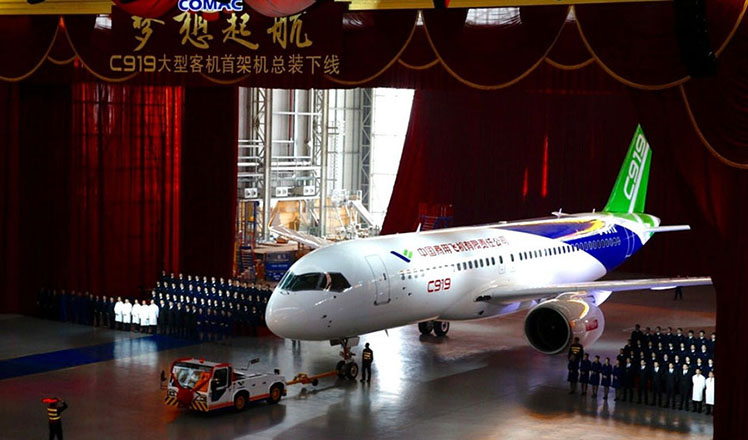Recycling plant to help clear Hebei air
Updated: 2015-11-10 08:01
By Zhang Yu and Wang Wei in Dingzhou, Hebei(China Daily)
|
||||||||
A major recycling plant is to be built in Hebei province.
The base, in Dingzhou, will mainly collect plastic waste from other cities in the province, as well as Beijing and Tianjin.
For the past 10 years, Dingzhou has collected more than 1 million metric tons of plastic waste each year, over 60 percent of which was from the Beijing-Tianjin-Hebei region, according to Yin Ruotian, a government official in Dingzhou.
At present, more than 1,700 tons of plastic waste are collected from the region and gathered in Dingzhou each day, Yin said.
"The integrated development of Beijing, Tianjin and Hebei has given impetus to the development of the base, which will help to improve the region's environment," Yin said.
The base, which is about 200 kilometers from the capital, will cover an area of 667 hectares when it is completed in 2018.
The first phase, which covers an area of 313 hectares and cost 10 billion yuan ($1.57 billion), is already in operation.
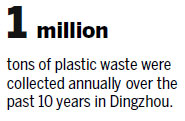
More than 200 small businesses currently collect the waste, spread across local villages, as well as Beijing and Tianjin.
In the future, the service will be expanded to include rubber, mechanical and electronic products and scrapped motor vehicles.
To better service these enterprises, the base will also develop supporting industries such as logistics, said Fan Dongliang, general manager of Hebei Yingyuan Renewable Resources Development Co, which manages the base.
"It was designed for the transition of local workshops, but now the base seems more useful for improving air quality in the region," Yin said.
Yin said the industry of recycling waste plastics has existed in villages around Dingzhou for 30 years, mostly operating from small family workshops.
The workshops used to process plastic waste with simple equipment and without any stringent environmental protection measures.
"Since it is an almost zero-cost business, small workshops emerged in villages, and villagers always evaded environmental restrictions by working at night," he said.
The villagers would crush used plastics, such as sports trainers, to make plastic granules that were sold to chemical manufacturers for reuse.
But the process created waste gas, water and solid waste, causing pollution, Yin said.
"Now, the base can provide a platform to gather the workshops and attract other large enterprises, which can use environmentally friendly facilities for free," Fan said.
Xue Chaohua contributed to this story.
Contact the writers at zhangyu1@chinadaily.com.cn

 Obama launches Facebook page, sends message on climate
Obama launches Facebook page, sends message on climate
 Washington 'showing anxiety in stance adopted toward Beijing'
Washington 'showing anxiety in stance adopted toward Beijing'
 Tug of war
Tug of war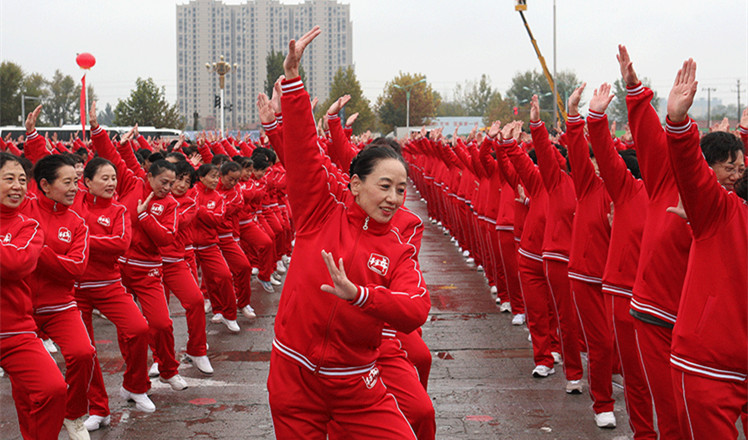
 Stepping into the record books
Stepping into the record books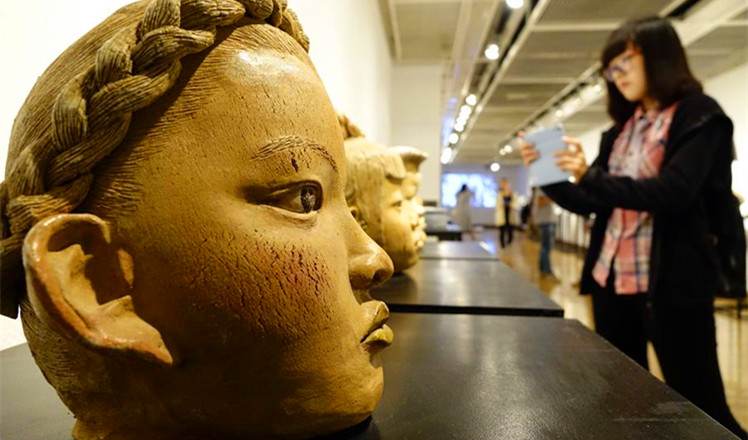
 Contemporary Asian ceramic art shines in Hangzhou
Contemporary Asian ceramic art shines in Hangzhou
 Top 10 most innovative companies in the world
Top 10 most innovative companies in the world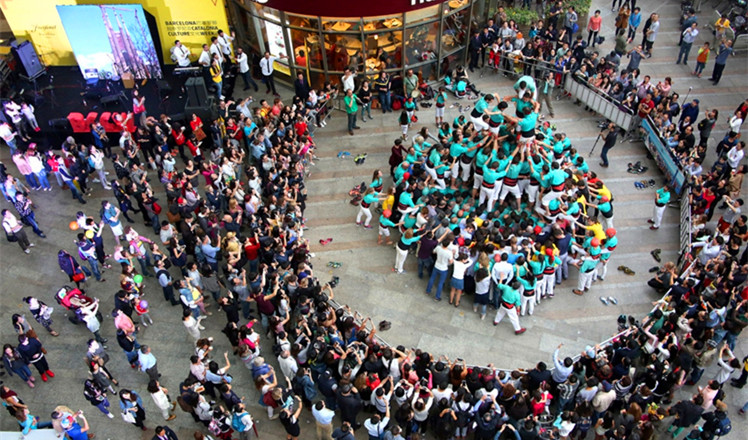
 Spanish-made human tower wows Shanghai audience
Spanish-made human tower wows Shanghai audience
 The world in photos: Nov 2-8
The world in photos: Nov 2-8
Most Viewed
Editor's Picks

|

|

|

|

|

|
Today's Top News
China, not Canada, is top US trade partner
Tu first Chinese to win Nobel Prize in Medicine
Huntsman says Sino-US relationship needs common goals
Xi pledges $2 billion to help developing countries
Young people from US look forward to Xi's state visit: Survey
US to accept more refugees than planned
Li calls on State-owned firms to tap more global markets
Apple's iOS App Store suffers first major attack
US Weekly

|

|


